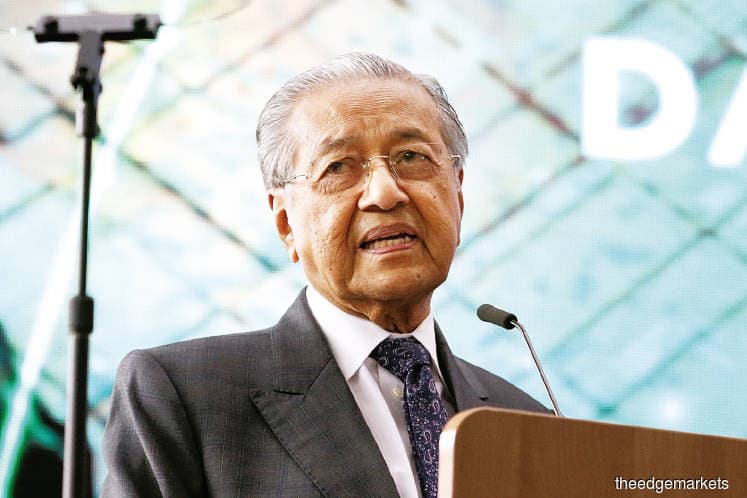
This article first appeared in The Edge Financial Daily on October 30, 2019
KUALA LUMPUR: Tun Dr Mahathir Mohamad yesterday admitted that his solution to help the country overcome problems wrought by the 1997-1998 Asian Financial Crisis had benefitted a few tycoons, but pointed out that doing so had prevented the situation from worsening and saved many from losing their jobs.
“It would have been good if we didn’t help the tycoons and let them and their businesses run into losses, fail and then forced to close.
“With that, all their staff (the rich and not rich) would be retrenched, while Malaysia’s exports would fall and there would be no inflow of foreign funds into our country,” the prime minister wrote on his blog, chedet.cc.
This means the government would then lose out on corporate taxes and income taxes as a big part of taxes are paid by tycoons, he said. “A huge chunk of government funds would be lost. The country would not be able to continue its operations and development. Infrastructure could not be built,” he said.
If that had come to be, he said the government would then be forced to impose taxes “on those not defined as tycoons”. “After these non-tycoons pay the taxes, they would then fall into the poor category,” he said.
Dr Mahathir then recalled a sort of global movement in the 1940s to 1950s, when businesses were raided by ruling parties who had hoped to enjoy all the profits generated by businesses.
“If we want to, we can drive out all these tycoons. Don’t help them. Let them go bankrupt. We only help those who are not tycoons. But how are we going to help the non-tycoons if all the tycoons can no longer pay taxes? That is the question,” he said.
“I admit I was involved in the crafting of the measures to overcome the financial crisis in 1997 to 1998. Yes, certainly our method to resolve the crisis has helped tycoons in Malaysia,” he said.
“I apologise as my actions to overcome the 1997-1998 financial crisis had benefitted the tycoons,” he added sarcastically.
It is unclear what prompted Dr Mahathir to touch on the matter, though he has long been criticised for practicing cronyism during his tenure as the fourth prime minister in 1981 to 2003.
In the 1980s, Dr Mahathir pushed for the privatisation of government entities and projects, which is deemed to have increased the participation of the private sector in the nation’s development.
That came to a halt in light of the Asian Financial Crisis, and Dr Mahathir’s administration — then under Barisan Nasional — provided support to what were deemed favoured businesses in industries such as aviation, rail and shipping, which were criticised as bailouts.
More recently, Syed Hussein Ali, who co-founded Pakatan Harapan’s largest party PKR, accused Dr Mahathir as having “returned to his former authoritarian self”.
In an interview with a local news portal earlier this month, the former PKR deputy president alleged that projects had been awarded to people deemed to be Dr Mahathir’s associates, including his own children, as well as Council of Eminent Persons chairman Tun Daim Zainuddin and business tycoon Tan Sri Syed Mokhtar Albukhary.